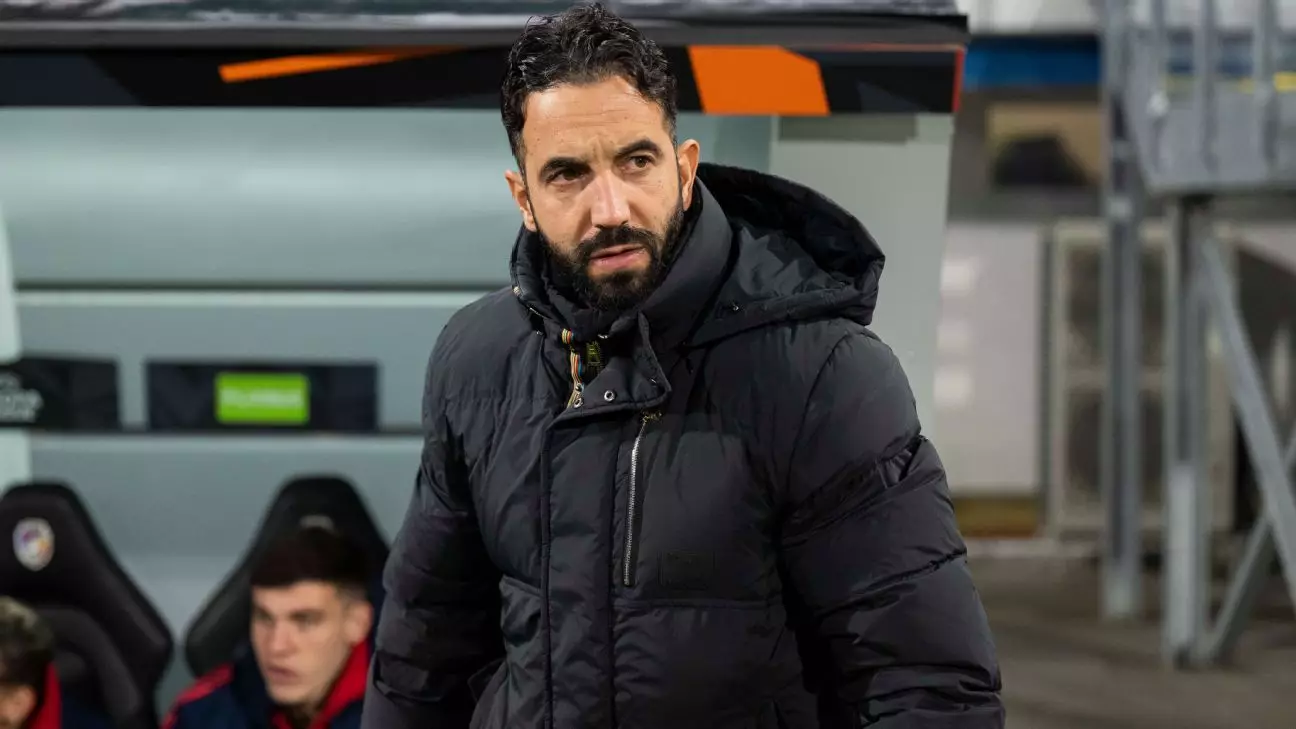As the anticipation builds for the upcoming Manchester derby, a pivotal moment looms large over both clubs. The once-dominant Manchester City is currently wrestling with a significant decline in form, having lost seven of their last ten encounters, a stark contrast to the glory days of their recent past. Pep Guardiola’s squad finds themselves grappling with a series of disappointing results, including a recent Champions League defeat to Juventus. This downward spiral has left City with a mere one win in their last ten games, prompting questions about the resilience of a club that was once the envy of the league.
On the other side of the city, Manchester United has shown signs of recovery, managing to claw back from a goal down to secure a 2-1 victory over FC Viktoria Plzen in the Europa League. This resilience, albeit against a less formidable opponent, offers a glimmer of hope for United fans who have endured years of uncertainty. As the two Manchester teams head into their derby clash, the narratives surrounding them could not be more different.
New United manager Ruben Amorim prepares for his inaugural Manchester derby with a mixture of excitement and apprehension. Despite United’s lower league standing, Amorim asserts that Manchester City is still in “a better place” when it comes to understanding the game and collective confidence. Such a statement, considering City’s recent performances, reflects a deep respect for their tactical prowess and historical legacy rather than their current form. Amorim emphasizes the importance of focusing on his own team’s shortcomings rather than letting the noise surrounding City’s struggles overshadow their preparations.
While his Sporting CP side previously delivered a decisive 4-1 victory over City in the Champions League, inside the high-pressure environment of the Premier League derby, history serves as a mere footnote. Amorim’s philosophy suggests a focus on internal dynamics, prioritizing his team’s issues over his opponent’s troubles. This introspective approach might be precisely what United needs as they strive for consistency amidst a turbulent transition period.
Both clubs once squared off in fierce battles for championship titles, particularly notable in the thrilling seasons of 2012 and 2013. However, Amorim candidly acknowledges the reality of the present—this is not a derby defined by title aspirations. He highlights the current state of the teams, indicating that neither is fighting for the top of the table at this moment. Instead, they enter the match as two clubs struggling to regain their former glories.
The ambition to restore Manchester United to their rightful place among the elite is clearly on Amorim’s mind. He expresses a desire for future derbies to be battles between title-challengers rather than simply a fight for pride. This longing for competitive significance in derbies showcases the underlying hope that both clubs can climb back to the pinnacle of English football.
Amorim’s journey to Manchester United was marred by speculation, including links to Manchester City had Guardiola’s contract situation unfolded differently. However, Amorim makes it clear that his loyalty lies firmly with United—his decision to join the Red Devils was not only immediate but also instinctive. The mutual respect and admiration between Amorim and his friend, Hugo Viana—who is expected to fill the role of director of football at City—do not distract him from the task at hand. His commitment speaks volumes about his vision for the club, focusing entirely on restoring United’s lost identity.
In the midst of these turbulent times, Amorim extends his support to goalkeeper André Onana, who has faced criticism following a series of errors that have cost his team valuable points. Acknowledging the inherent challenges a goalkeeper encounters, he takes a pragmatic approach. Amorim insists the team must rally around Onana, turning past mistakes into collective learning experiences. His understanding of the psychological strains that players endure in high-stakes environments illustrates a positive coaching mentality, one that prioritizes resilience and development over immediate condemnation.
As the Manchester derby approaches, the stakes involve much more than three points. For both clubs, the match serves as a crucial crucible to ignite their respective pathways to recovery. Amorim’s comments capture a broader narrative of aspiration and hope, reflecting a desire not just to compete, but to reclaim the pride and joy that often accompanies the clashes between Manchester’s giants. The future of this rivalry, clouded with challenges today, holds the potential for renewed thrilling encounters, rich with significance and impact for football fans and the clubs alike.
